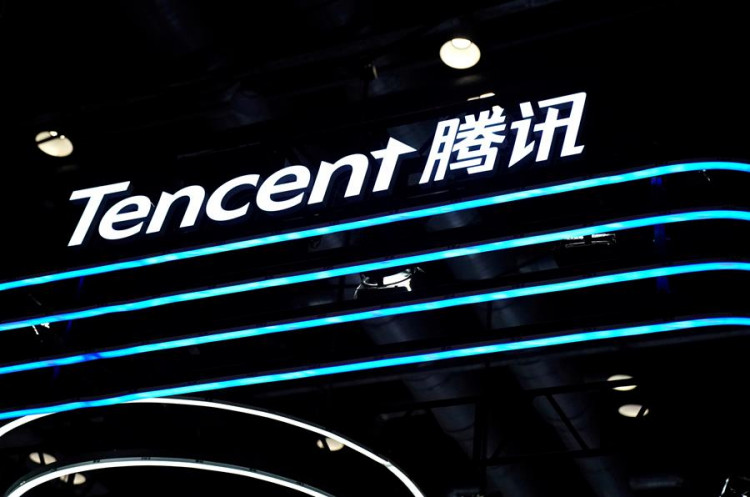The U.S. Department of Defense has added Chinese tech giants Tencent, CATL, and SenseTime to its list of companies allegedly linked to China's military, escalating tensions between the world's two largest economies. The decision, announced this week, has drawn sharp rebukes from the affected companies and sent ripples through financial markets.
Tencent, the world's largest video gaming company and operator of the WeChat messaging platform, labeled its inclusion on the Pentagon's list a "mistake" and vowed to challenge the designation. "As the company is neither a Chinese military company nor a military-civil fusion contributor to the Chinese defense industrial base, it believes that its inclusion in the CMC List is a mistake," Tencent stated in a filing to the Hong Kong Stock Exchange. The company plans to engage with U.S. authorities and may take legal action to have its name removed.
Shares of Tencent fell 7.3% in Hong Kong following the announcement, reflecting investor concerns over the potential reputational damage and business risks tied to the designation. CATL, the world's largest battery maker, also contested its inclusion, stating it has "never engaged in any military-related business or activities." The company's stock dipped 2.84% in Shenzhen.
SenseTime, a leading artificial intelligence firm, also denied any military connections. In a statement, the company said the designation had "no factual basis" and vowed to work with stakeholders to address the issue. SenseTime added that the listing would not materially impact its global operations.
The Pentagon's list, updated annually, now includes 134 companies it claims support China's military. While inclusion on the list does not trigger immediate sanctions, it bars U.S. defense agencies from engaging with the named companies starting in June 2026. The designation could also hinder commercial prospects in the U.S. and beyond, especially as Washington intensifies scrutiny of Chinese technology firms.
The U.S. Defense Department described the list as part of an effort to counter China's "military-civil fusion" strategy, a national policy under President Xi Jinping that integrates civilian industries with military objectives. Beijing has consistently denied that such integration poses any threat and criticized the U.S. for politicizing business ties.
At a press briefing, Chinese Foreign Ministry spokesperson Guo Jiakun condemned the move, urging the U.S. to "immediately correct its wrong practices" and "lift the illegal unilateral sanctions and long-arm jurisdiction on Chinese companies." Guo accused Washington of "unwarrantedly suppressing Chinese companies" under the guise of national security.
The inclusion of Tencent and CATL highlights the growing entanglement of geopolitics and global technology supply chains. Tencent, whose global portfolio includes stakes in U.S. firms like Reddit and Snap, has faced prior scrutiny from Washington. In 2020, the Trump administration attempted to ban WeChat in the U.S., citing national security concerns, though the order was later rescinded by President Joe Biden.
CATL's role as a supplier of electric vehicle batteries to major global players like Tesla and Ford could make it particularly vulnerable to further U.S. actions. The company recently announced plans to assist Ford in building a lithium-ion battery plant in Michigan, a collaboration that now faces heightened scrutiny.
The U.S.-China tech rivalry has been escalating in recent months. The outgoing Biden administration imposed export controls on advanced semiconductors and AI technology in December, citing concerns about their potential military applications. Beijing responded by announcing restrictions on the export of technology critical to the electric vehicle supply chain, signaling a tit-for-tat escalation.
Experts suggest the blacklisting could have broader implications for global technology ecosystems. "Washington has widened the techno-nationalist grey zone for an entire ecosystem of Chinese and non-Chinese companies that rely on Tencent for cloud infrastructure and other services," said Alex Capri, a lecturer at the National University of Singapore.
Analysts believe that companies like Tencent may follow precedents set by Xiaomi, which successfully challenged a similar designation in U.S. courts in 2021. "Given Tencent's business model-primarily focused on social networking and gaming-it has a good chance to secure exclusion through U.S. courts," said Ivan Su, senior equity analyst at Morningstar.
Still, the broader trajectory of U.S.-China relations suggests that further economic and regulatory hurdles could arise. Zhou Chao, a researcher at the Beijing-based think tank Anbound, warned that the designation could limit Tencent's ability to procure advanced technology from U.S. firms like Nvidia, a key player in AI chip design.






